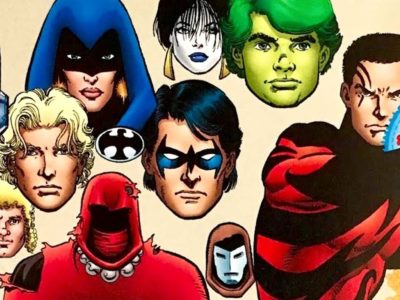
[ad_1]
The Sentry grappling with addiction and mental illness are major tenants of his character, but they may be too much for the MCU.
The Sentry has the honor of being both one of the most powerful Marvel superheroes and one of the most controversial, and these two facts are not exactly mutually exclusive. Marvel’s take on a certain Man of Steel, The Sentry, and the events that introduced him was seen as ill-fitting for the more grounded Marvel Universe. Despite this immense power level, The Sentry is shown to have a surprising weakness.
One of the reasons that the Golden Guardian of Good is so powerful is that he literally became addicted to the drugs that first empowered him. This made what was essentially a superhero deconstruction character even darker. It’s this darkness that might keep him out of the MCU. Here’s a look at The Sentry’s substance dependency and why it might be too dark for the big screen.
The Sentry and Drug Addiction
Even before becoming The Sentry, Robert Reynolds, his human alter ego, was a drug addict. He first took the compound that gave him his powers as a means of potentially getting high, and he discovered it and its Nazi creators (who were hoping to recreate Captain America’s super-soldier serum) by accident. The event that turned him into The Sentry the first time was also incredibly dark and tragic, as it killed several of those around him. Now craving the power that the serum bequeathed him, Reynolds was desperate for the scientist who created the Golden Sentry Serum to make more of it.
Despite his sunny exterior, he would become increasingly dependent on this substance. This is referenced in the original The Sentry miniseries by Paul Jenkins and John Romita Jr., where a flashback to the lowest point of his addiction evokes the grim and gritty nature of stories like The Dark Knight Returns by Frank Miller, Klaus Janson, and Lynn Varley. This volatile nature, when combined with his own mental illness and the threat of his evil counterpart The Void, made Reynolds a threat to everyone around him, forcing The Sentry to disappear.
Is The Sentry’s Addiction Too Dark for the Marvel Cinematic Universe?
So far, the MCU has eschewed much in the way of darker storytelling in favor of more family-friendly blockbuster fare. This has seen key storylines like Iron Man’s alcoholism being entirely glossed over. Likewise, issues involving mental health and psychosis, namely that of the Hulk, are also overlooked, with the character’s development arguably suffering greatly because of it. Thus, even if The Sentry is ever introduced into the MCU, it’s unlikely that his addiction will be addressed.
Though he’s essentially a reworking of Marvelman/Miracleman, and thus has more in common with Captain Marvel/Shazam, The Sentry is still in most respects Marvel’s version of DC’s Superman. Having a cinematic “Superman” deal with both mental illness and drug addiction would certainly be something that could make for great cinema, but it’s doubtful that it’s the type of story that Marvel wants to tell.
The type and scope of film needed to do this story justice would be far away from what the MCU’s done, with even the attempt at depth of the recent film The Eternals being nothing like this. A Disney+ show might have more room and time to tell this story, but it’s an even less likely place to feature a superhero story that would make Zack Snyder’s take on Superman look like Richard Donner’s! In fact, the story would in many ways resemble the original, much darker concept for the film that became Hancock.
The reluctance to dive into the hero’s addiction and mental illness, as well as how it endangers those around him, is one of several reasons that The Sentry likely won’t be flying into the MCU anytime soon. The worst part is, these concepts have never truly been as explored in the comics as they should have, so perhaps Marvel should focus on cementing The Sentry there before doing so anywhere else.
About The Author
[ad_2]






